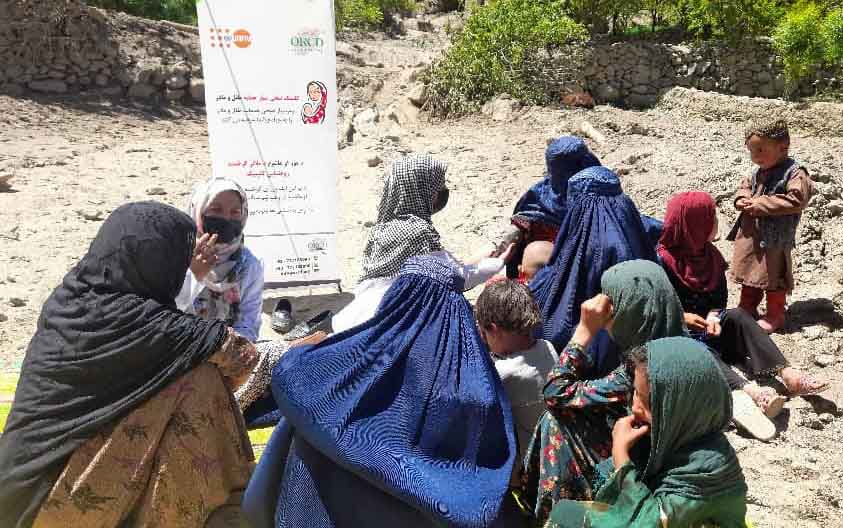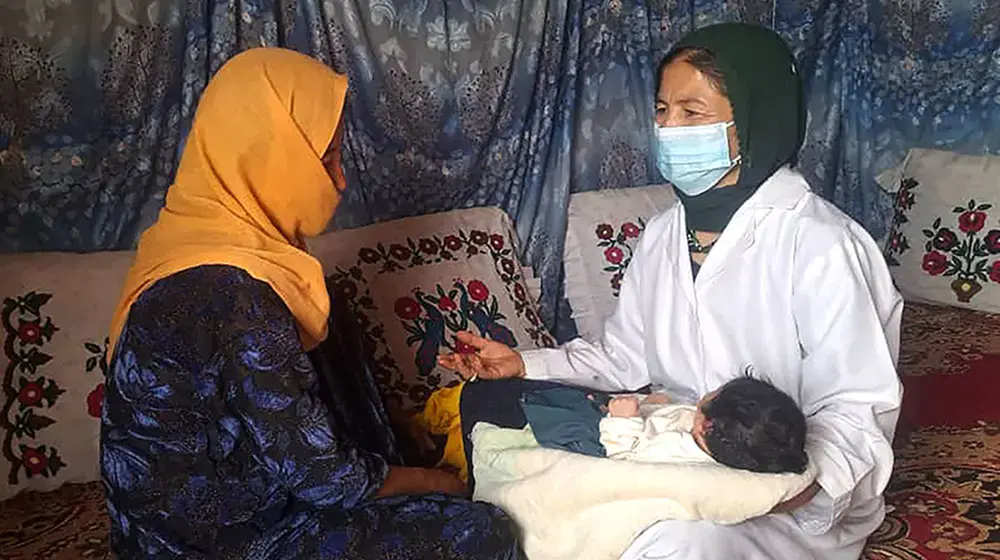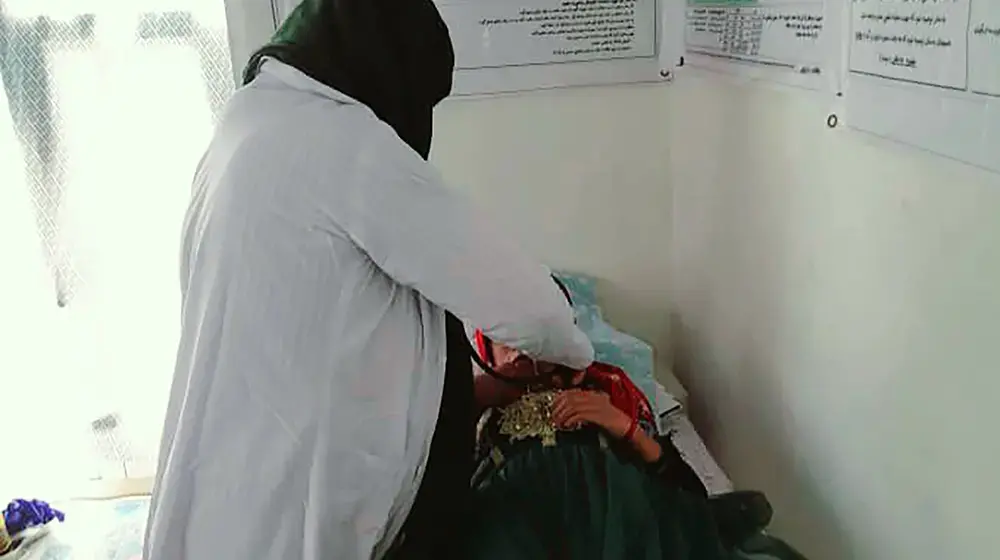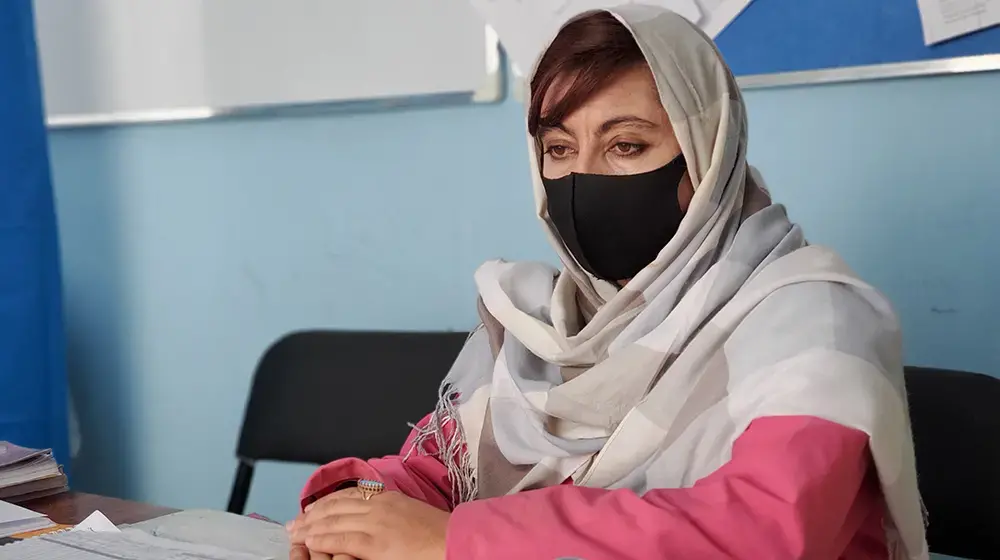Baghlan, Afghanistan – “Women were in shock. They’ve lost their homes, they’ve lost family members.”
The image of destruction caused by the massive flooding in the northern part of Afghanistan remains vivid in the minds of midwives Habiba Danish and Roqia Saberi. But what struck them more was the suffering of women in the affected communities that they witnessed.
Habiba is part of a Mobile Health Team (MHT) that was immediately deployed to Baghlan to provide round-the-clock maternal health and psychosocial support services to the people affected by the devastating floods in the province.
“We had to trek for seven hours, and stay overnight on the way to reach Pushta Kaja Village because the roads were impassable,” Habiba said.
Upon reaching the village, Habiba encountered a 25-year-old woman who is four months pregnant.
“She was visibly distressed because her home had been destroyed, putting her family in a dire situation,” Habiba recounted. “After examining her and administering some medication prescribed by the doctor in our team, I advised her to seek further evaluation from a well-equipped health facility for an ultrasound examination.”
The midwife has since attended to other women who needed not just maternal health care but also psychosocial support. “The women were in shock,” Habiba recalled. “They've lost their homes and family members.”
The situation has exacerbated the hardship of the local community. OCHA reports that the districts most affected by the flooding are Burka and Baghlani Jadid/Markazi in Baghlan province, where 80 per cent of deaths have been recorded. Over 3,000 homes have also been destroyed or damaged in the province.
“Women are particularly vulnerable; they're grappling with mental distress and struggling to focus, highlighting the urgency of providing them with crucial health services,” Habiba said. “The MHT remains on the ground to provide psychosocial counselling and support to help women cope with the shock, anxiety and depression. It is crucial that we stand by them during this time.”

The MHT’s presence has been instrumental in facilitating the health education and counselling sessions for women and girls. However, due to the scattered population and the impact of the flash floods on the terrain and roads, reaching them is challenging.
Roqia Saberi, a midwife from another MHT, said the Basic Health Center (BHC) in Shaikh Jalal Village, Baghlani Markazi District, was totally destroyed, leaving people in desperate need of health services. Thus, the MHT came to deliver maternal and reproductive health services.
On her first day on the ground, Roqia attended to more than 20 female patients who required her assistance. “Nine out of the 20 women needed antenatal care support,” Roqia shared. “Two of the women were in the last trimester of pregnancy and both were in shock and fear. I provided them with Clean Delivery Kits and advised them to seek further care from a well-equipped health facility.”
Aside from deploying MHTs to deliver maternal and reproductive health and psychosocial counselling, UNFPA also collaborates with partners to dispatch and distribute Dignity Kits, menstrual hygiene kits, tarpaulin sheets and blankets, prioritizing the well-being of affected women and girls.
The MHTs, managed by ORCD Afghanistan, are committed to remaining in the flood-affected area to offer 24/7 assistance for the immediate health needs of women and girls. The MHTs, supported with funding from the Government of Australia, were able to pivot from protracted emergency work to immediately respond to the flooding situation.





